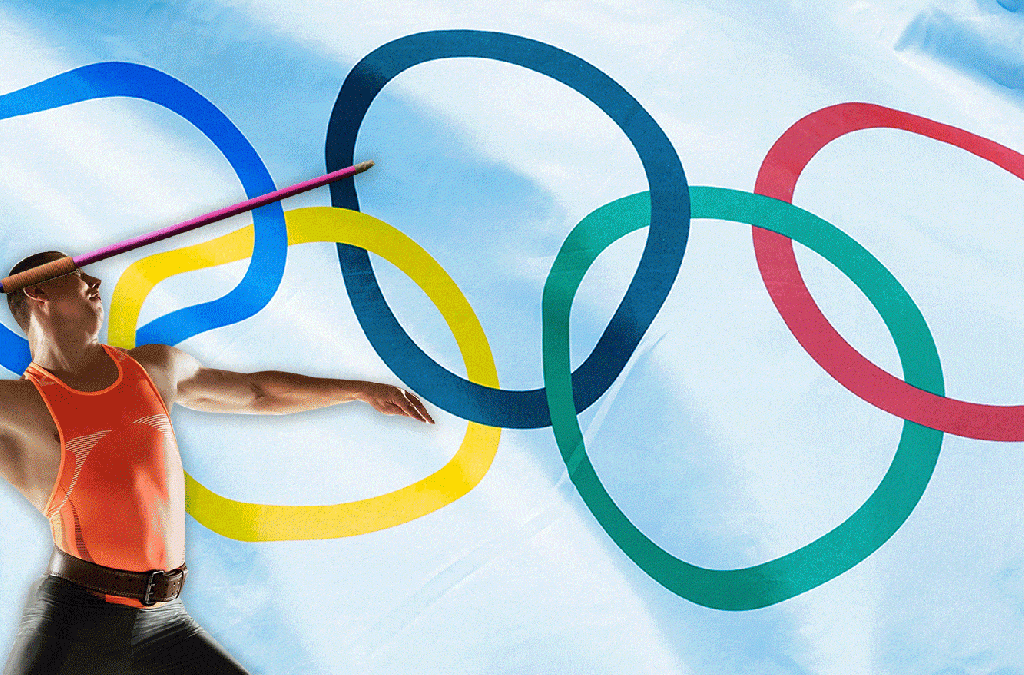Silicon Valley billionaire Peter Thiel is throwing his financial muscle behind an “Olympics on steroids” — whose organizer boasts that athletes will dope “out in the open and honestly.”
Thiel, who made his fortune as an early investor in tech startups like PayPal and Facebook, is backing the Enhanced Games, which will actively encourage athletes to use performance-enhancing drugs.
The venture — aimed at aiding research into nutritional supplements and biohacks that push the boundaries of human performance — is the brainchild of Dr. Aron D’Souza, a lawyer by training who famously conceived Thiel’s lawsuit against Gawker Media.
He plans to provide more details on April 17 and promote the controversial concept in Paris during the Summer Olympics, which begin in July.
Thiel is among several high-profile venture capitalists who have backed the project, including billionaire Christian Angermayer of Apeiron Investment Group and Balaji Srinivasan, the former chief technology officer of cryptocurrency exchange Coinbase.
D’Souza would not reveal how much money was raised, telling The Post it was in the “high single-digit millions” — a sum that is “enough to produce the first games.”
D’Souza said that Enhanced Games are negotiating with several host cities “that have requisite infrastructure” though he declined to specify which venue will host the inaugural competition, which he expects to get underway by the middle of next year.
The competition will feature five events — swimming, gymnastics, weightlifting, track and field, and combat — and will be held once a year at already-existing venues.
He told The Post that the idea behind Enhanced Games is to allow athletes to use whatever substances they wish “out in the open and honestly” — unlike at the Olympics, where “44% of Olympians admit to using banned substance while only 1% get caught.”
“My body, my choice, your body, your choice,” D’Souza told The Post when asked about the philosophy behind allowing athletes to juice.
“Individuals should be able to make choices about your body and no one — whether it’s a sports federation or the government — should be able to tell them what to do about it,” he said.
He said that the events are open to any athletes — current and former professionals and amateurs — and that allowing them to enhance their performance with substances will enable researchers to get a better idea of what technologies are out there that can boost longevity and “healthy aging.”
“We think that this will create conditions by which we will get a much larger data pool of athletes and individuals who are aspiring to self improvement through science,” D’Souza said.
He said that the data would be “very useful to determining compounds and therapies to extending human life.”
D’Souza predicted that Enhanced Games would do for anti-aging what “ChatGPT did for AI.”
The 56-year-old Thiel is among several Silicon Valley moguls who have invested millions in funding research aimed at helping people live longer.
Thiel himself takes human growth hormone to help maintain muscle mass as well as anti-diabetes drug metformin, which has grown popular in the anti-aging community.
Thiel told media outlets that he adheres to the paleo diet — which eschews processed foods in favor of unprocessed fruits, vegetables and lean meat — and that he aims to one day have his body cryogenically frozen so that he can be posthumously revived if and when technology allows for it.
So far, 900 athletes have expressed interest in participating in the Enhanced Games, according to D’Souza.
He said Enhanced Games’ free-for-all philosophy will allow athletes who “didn’t win the genetic lottery” to experiment with supplementation that could boost their performance.
“Anyone who wants to compete and can do so,” D’Souza said.
Enhanced Games will also pay athletes a base salary in addition to prize winnings.
The idea is to avoid an Olympics-style competition in which countries and municipalities compete for the right to host the games by building taxpayer-funded stadiums and venues — only for those same venues to stand unused after the event is over.
Economists at Oxford University conducted an analysis which found that every Olympics since 1960 has run over budget.
D’Souza told The Post that the Enhanced Games will be entirely funded with private money.
“The Olympics wastes tens of billions of dollars building stadiums and then throwing them away after two weeks,” D’Souza said.
Dr. Grigory Rodchenkov, the Russian anti-doping whistleblower who exposed the country’s state-sponsored doping program, called the idea a “danger to health, to sport.”
Anna Meares, a former Olympic gold medalist who serves as Australia’s Olympic chef de mission for the Paris Summer Games, told The Guardian: “It’s a joke, to be honest.
“Unfair, unsafe — I just don’t think this is the right way to go about sport,” she said.
Source




